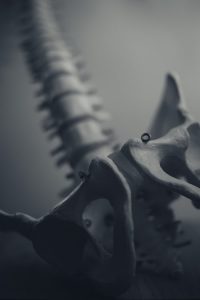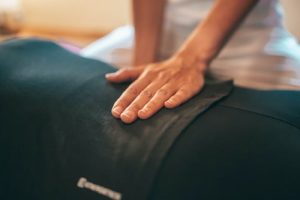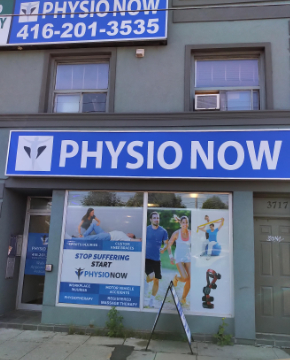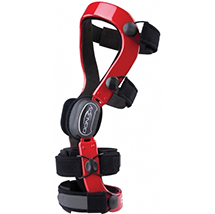What is urinary incontinence?
Urinary incontinence is when person leaks urine by accident due to loss of control of the bladder muscles. The severity of incontinence may vary from occasional incidents, like leaking while coughing or laughing, to more severe like having sudden strong urges where you are unable to make it to the toilet in time.
How does the bladder function normally?
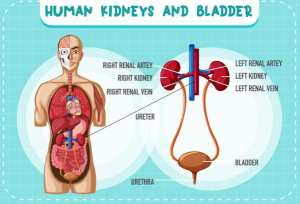
These organs make up our body’s urinary system, which is how our body creates and removes urine from the body
Normally, the brain and the bladder work in close partnership to control urination. First, urine gets stored in the bladder until it receives the signal from brain to empty it. The bladder is one of the pelvic organs, meaning that the pelvic floor muscles provide support to it and hold it in the proper position. Usually, the bladder muscle stays in the relaxed position while it holds urine. At the same time, the urethra, which is the tube that carries urine out of the body is closed by a sphincter (controlled by the bladder muscle), so that urine doesn’t leak. Once you receive the signal from the brain, the bladder muscle contracts, opening up the sphincter and lets the urine out of the urethra.
What are the different types of urinary incontinence?
-
Stress Incontinence
Stress incontinence is where the leaking occurs with several activities of daily routine like coughing, sneezing, running, laughing, jumping, exercising or lifting heavy. These activities exert lots of pressure on the bladder due to weak pelvic floor muscles, results in urine leakage. As expected, the chances of leaking increase the fuller the bladder is. This is one of the most common types of incontinence, especially in elderly women. However, unlike some people believe, urinary incontinence is not a normal sign of aging. Instead, it is a problem which should and can be properly treated.
Risk factors for stress incontinence:
Postpartum women are at a high risk due to damage to tissues or nerves that may occur during delivery. Women with vaginal and forceps delivery are also at higher risk than with c-section
or vacuum delivery. Additionally, men after prostate surgery can develop this. For example, the removal of the prostate gland in cancer patients may weaken the sphincter muscles which lies below the prostate gland.
Othe contributing factors include:
- Chronic illness with high frequency of coughing
- Smoking which can cause frequent coughing
- Obesity: Excess body weight puts more pressure on pelvic organs and can lead to stress incontinence
- History of pelvic organ prolapses: Depending on the level of prolapse, mild bladder prolapse can cause occasional incontinence.
2) Urge incontinence
It is a type of incontinence that causes the sudden urge to void the bladder and results in involuntary leakage of urine. In other words, you may leak the urine before you reach the bathroom.
Urge incontinence is most commonly associated with an overactive bladder. The muscles in the bladder squeeze more frequently than normal. As a result, you feel like you have to use the bathroom frequently even though the bladder is not actually full.
Risk factors for urge incontinence:
- Diabetes: Uncontrolled blood sugar levels can lead to increased chance of urinary tract infection and frequent urges to urinate. People with uncontrolled sugar levels may have damaged the nerve controlling the bladder, leading to urge incontinence.
- Hysterectomy: Damage to the nerve around the bladder during this procedure can lead to incontinence
- Spinal cord damage due to direct trauma or injury
- Stroke
- Prostate problems like prostate cancer or an enlarged prostate
How can incontinence be treated?
Incontinence can be treated through consultation with a specialist. It is important to gain the proper education and understand the condition of incontinence. A pelvic health physiotherapist can help you understand the basic function of the urinary system. With this understanding, they can teach you different techniques to control the leakage, frequency, and urgency of it.
For example, some of these techniques may include:
- Toileting positioning education regarding proper liquid intake and its importance
- Breathing exercises
- Double voiding methods
- Keeping a log of urinary leakage (bladder diary)
- Pelvic floor strengthening exercises
- Electrical stimulators
- Internal manual techniques
How do I get help?
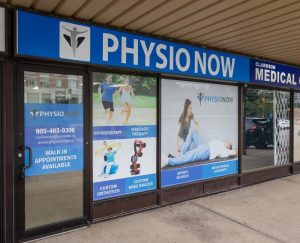
Our physiotherapy clinic PhysioNow has 9 locations to serve you across the GTA, from Burlington to Etobicoke
At PhysioNow, our pelvic floor physiotherapists can guide you in your recovery from incontinence and other pelvic-related conditions. With locations across the GTA including Burlington, Oakville, Mississauga, and Etobicoke, we will have a location suited to you. Book with PhysioNow today for your first assessment and treatment.



